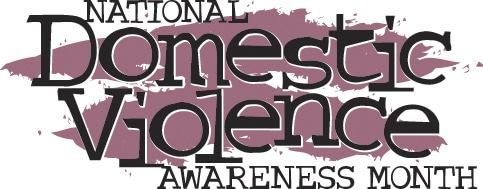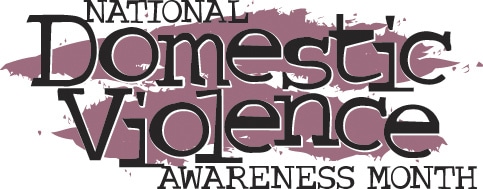

DARKE COUNTY — Domestic Violence Awareness Month (DVAM) is celebrated each October, evolving from the “Day of Unity” held in October 1981 and conceived by the National Coalition Against Domestic Violence.
The intent, it was noted, was to connect advocates across the nation who were working to end violence against women and their children. The Day of Unity soon became an entire week devoted to a range of activities conducted at the local, state, and national level. The activities conducted were as varied and diverse as the program sponsors but had common themes: Mourning those who have died because of domestic violence, celebrating those who have survived and connecting those who work to end violence.
In October 1987, the first Domestic Violence Awareness Month was observed. That same year marks the initiation of the first national domestic violence toll-free hotline. In 1989, the U.S. Congress passed Public Law 101-112 designating October of that year as National Domestic Violence Awareness Month. Such legislation has passed every year since with NCADV providing key leadership in this effort. Each year, the Day of Unity is celebrated the first Monday of Domestic Violence Awareness Month.
Domestic violence impacts women, men, and children of every age, background and belief. Nearly one in four women and one in seven men in the United States have suffered severe physical violence by an intimate partner. Victims are deprived of their autonomy, liberty, and security, and face tremendous threats to their health and safety.
During National Domestic Violence Awareness Month, we reaffirm our dedication to forging an America where no one suffers the hurt and hardship that domestic violence causes — and we recommit to doing everything in our power to uphold the basic human right to be free from violence and abuse.
The month is observed in hopes of helping victims through their pain and moving forward in the fight to eradicate domestic violence from the world.
Annie Sonner, coordinator for the Darke County Shelter From Violence has released five facts about children of domestic violence.
“A violent childhood isn’t just forgotten as children grow up,” information she provided said. “Consider this: 90 percent of parents who are currently experiencing domestic violence within their relationship believe their children don’t know what’s happening. But when researchers asked the children, 90 percent of them were, in fact, well aware.”
That report said it is estimated that more than 275 million children worldwide are currently being exposed to violence in the home. UNICEF calls this epidemic, “One of the most pervasive human rights violations of our time.”
Brian F. Martin founded Children of Domestic Violence, a New York-based non-profit organization, in 2007 to bring awareness to the problem of childhood domestic violence (CDV), a little-known term to the public but used by prominent researchers to describe growing up with violence between parents or a parent and significant other. Through his organization, he educates others about the effects of CDV and is hoping an increased awareness will create more widespread application of solutions.
Martin, a survivor of CDV himself, is also the author of Invincible: The 10 Lies You Learn Growing Up with Domestic Violence, which topped the New York Times bestseller list.
Following are five things Martin said anyone who has experienced CDV should know:
• Adversity faced in childhood is very different than adversity faced as an adult because of a child’s underdeveloped brain and nervous system. Experiencing trauma and adversity at home, as a child, can negatively wire a developing brain. “The brain seeks to find evidence that it believes is true,” says Martin, meaning, if you were conditioned as a child to believe that you were weak and powerless, wouldn’t it make sense for those feelings to carry over into adulthood?
• Children with CDV, once they reach adulthood, are six times more likely to commit suicide, 50 percent more likely to be addicted to drugs and alcohol and 74 times more likely to commit a violent crime. “They will not reach their full potential unless they unlearn what was learned,” Martin said.
• Experiencing CDV in childhood means you learned a lie—that anger is a good way to teach others a lesson so they’ll do what we want them to do. But, says Martin, “The truth is that you can take the energy that anger produces and use it to pursue passionately the things you most want in life.
• Those who experience suffering in childhood truly know what suffering feels like. Martin says only when we can find compassion for ourselves will we be able to truly have compassion for others.
• No obstacle you will face as an adult can compare to what you faced in childhood and have already overcome.
It’s a hotly debated topic with no easy answer. Can people change? Sure, everyone change as they mature and grow older. And, they even change their unhealthy addictions, like drinking too much or doing drugs. But when it comes to abusers, the question seems to be more weighted. Even if he says he can change, will change, wants to change—can you trust him again?
According to author Kathryn Robinson on The National Domestic Violence Hotline blog, “While people do have the capacity to change, they need to deeply want to and be committed to all aspects of change in order to begin to do so.” Even then, she said, it’s easier said than done. Abusers often abuse because of learned attitudes and feelings of entitlement and privilege, which can be difficult to reverse. To start the recovery process, an abuser should locate a certified batterer intervention program immediately.
Every day, three women in this country are killed by their husbands or boyfriends, according to another website. Avoid becoming a statistic by being smart and recognizing the warning signs of an abusive relationship before it can even begin.
According to My Sister’s House, a domestic violence shelter in South Carolina, the following are some indicators of potentially abusive relationships. It should be noted, however, that just because a person may match one or more of these characteristics does not define them as an abuser. These red flags are just that—warning signs that are worth paying attention to. You should question entering into a relationship with a partner who matches the warning signs
Indicators of abusive relationships:
• Pressures you to move fast in a relationship or pushes for immediate commitment.
• Has been abusive in past relationships.
• Believes in stereotyped gender roles and male supremacy, and is domineering.
• Is very jealous and possessive. Isolates you from your friends and family and may try to persuade you not to have a job.
• Has two sides to his or her personality—others see your partner as a good person, but behind closed doors, he or she is angry and aggressive toward you.
• Experiences most emotions in the form of anger and has difficulty conveying other emotions.
• Has a violent temper and quickly changing moods.
• Is cruel to animals or children and is insensitive to their suffering.
• Monitors your whereabouts, activities or spending.
Amy Borst, MFT, clinical director of Laura’s House, a domestic violence shelter in Orange County, Calif., said that victims who find themselves in abusive relationships should also be aware of the warning signs that indicate an escalating situation. “There’s a shortening of time between abusive incidents, along with threats of physical or bodily harm,” said Borst.
Another indicator is when the abuser obtains the means by which the threats are made, such as purchasing a gun.
“Bottom line: If you feel threatened by your partner, don’t wait to get help,” she said.


